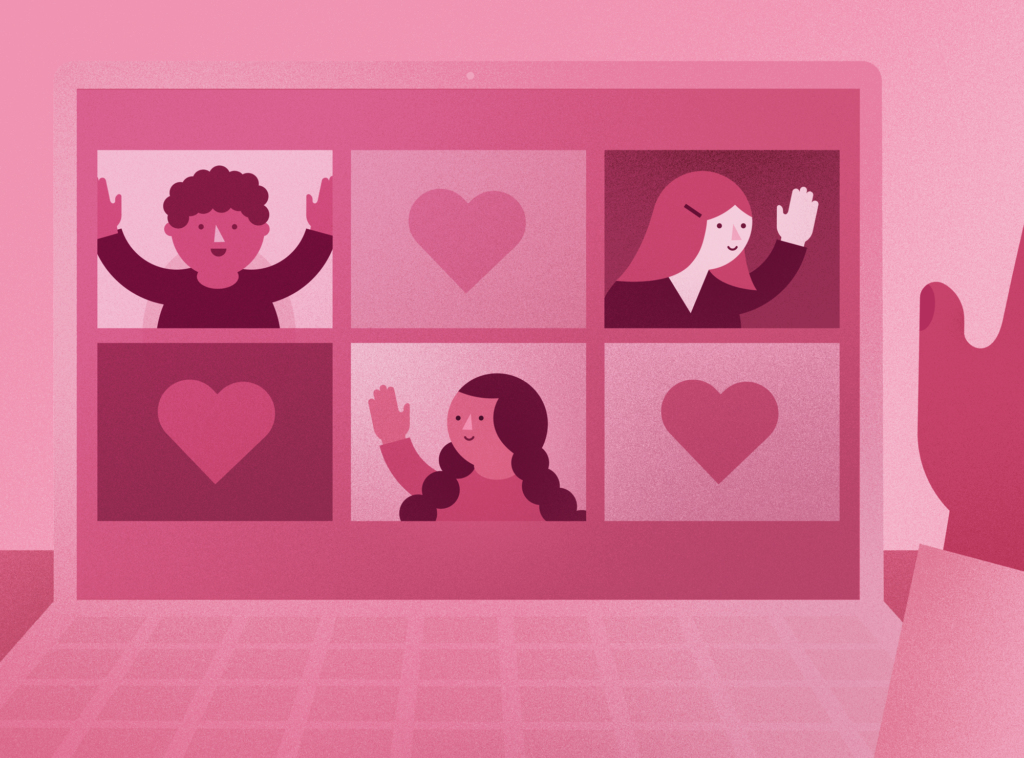
Dr. Samantha Boardman shares her tip of the week, an adaptation of a piece she wrote recently for her Positive Prescription website.
As a psychiatrist, I recognize how valuable everyday interactions are for mental health. We are deeply social creatures who need others as much as we need air to breathe. People who spend more time with others each day are happier and healthier than those who are less sociable. And connecting with friends and family usually means doing so in person.
But not now.
Today, I implore you to keep your distance. Please don’t visit your parents. Skip playdates and dinner parties. Work from home if you can. Do your part to curb the spread of coronavirus in the community. Social distancing might be inconvenient, but someone else’s life may depend on it.
It feels strange endorsing social distancing when so much of our well-being depends on social connection. But seeing the inventive ways people are staying in touch gives me hope. A video of quarantined neighbors in Siena singing a popular Italian song from their balconies and waving at one another reminds us that we are not alone.
Try these tips for staying physically distant yet socially connected:
- Maintain an other-orientation. Self-interest will only make you feel worse and stress you out. You can encourage this perspective at meals with discussion topics such as:
If you could be any historical figure, who would it be and why?
Describe a quality you admire in your best friend.
What lesson have you learned that you would like to share with people younger than you? - Set ground rules with family members/roommates/partners. Don’t walk around with your phone in your hand constantly sharing breaking news. Your constant updates will amplify the anxiety in the house, especially if there are kids around.
- Schedule a FaceTime lunch with a friend, set up a virtual book club, watch the History Channel’s Washington documentary “together,” or plan a Skype happy hour. And don’t forget to recreate water cooler moments. Jamil Zaki, a professor of psychology at Stanford, observes: “When we share physical space, we don’t confine our conversations to urgent matters. We dawdle, kibbitz, and goof off. Those in-between moments are urgent—to our sense of place and community. We must keep them around in whatever format we can.”
- Give to others where you can. Donate to a charitable organization like Meals on Wheels, which delivers meals to the elderly. Continue to pay hourly workers like your dog walker or housekeeper even if they aren’t working.
- Get creative with gratitude. Send a message to someone you never properly thanked–a teacher, a doctor, a mentor, a colleague. I was inspired by these people in Madrid thanking healthcare workers.
- When you have to go to the store, ask an elderly neighbor if they need anything. Becky Wass, a lecturer in Cornwall, created a #viralkindness campaign, putting postcards on doorsteps with this message:

There are many ways to stay close while keeping your distance. My friend Jessica Seinfeld sent me this thought from a rabbi:
“Every hand that we don’t shake must become a phone call that we place. Every embrace that we avoid must become a verbal expression of warmth and concern. Every inch and every foot that we physically place between ourselves and another must become a thought as to how we might be of help to that other.”
Coronavirus isn’t about any one of us. It’s about all of us.
With kindness and gratitude,
Samantha
Dr. Samantha Boardman is a clinical instructor in psychiatry and an assistant attending psychiatrist at Weill Cornell Medical College. She serves on the Advisory Council for Character Lab.
